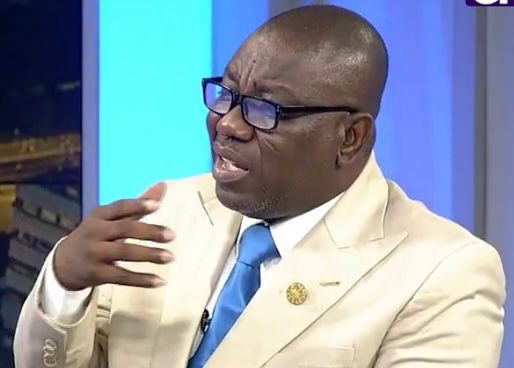The political landscape in Ghana recently witnessed a dramatic turn of events involving the detention of Bernard Antwi Boasiako, popularly known as Chairman Wontumi, the Ashanti Regional Chairman of the ruling New Patriotic Party (NPP), and the subsequent actions, or rather inaction, of the Minority caucus in Parliament. The Minority, initially staunch in their support for Chairman Wontumi, had vowed to boycott parliamentary proceedings until his release from the custody of the Economic and Organised Crime Office (EOCO). This bold declaration of solidarity, however, proved short-lived, as the Minority members rescinded their boycott and returned to Parliament, leaving Chairman Wontumi to face his legal challenges alone. This U-turn became the subject of intense scrutiny and ridicule, particularly from Isaac Adongo, the Member of Parliament for Bolgatanga Central.
Adongo, seizing the opportunity to lambast the Minority’s perceived betrayal, mocked their swift return to the parliamentary chamber. He pointedly questioned their commitment to Chairman Wontumi, highlighting the stark contrast between their initial pronouncements of unwavering support and their eventual abandonment of the detained NPP executive. Adongo’s remarks, delivered with a touch of sarcasm, painted a picture of a Minority caucus more concerned with their own comfort and parliamentary duties than with the plight of their political adversary. He insinuated that Chairman Wontumi, expecting solidarity and perhaps envisioning his fellow party members joining him in his predicament, would be deeply disappointed by their abrupt change of heart.
The backdrop to this political drama is the serious nature of the allegations against Chairman Wontumi. EOCO is investigating him for a range of criminal offences, including fraud, causing financial loss to the state, and money laundering. These accusations suggest potential misconduct involving significant sums of money and raise concerns about the potential misuse of public funds. Adding to the complexity of the situation is the concurrent asset recovery process initiated by law enforcement agencies. This process aims to prevent the dissipation of assets suspected to be proceeds of crime, indicating the gravity of the allegations and the potential financial implications of the investigation.
Further complicating matters is the revelation of a second, broader international organized crime investigation involving Chairman Wontumi. This international dimension suggests a network of criminal activity extending beyond Ghana’s borders and involves collaboration with international law enforcement partners. The scope of this investigation raises significant questions about the extent of the alleged criminal enterprise and the potential involvement of individuals and organizations across multiple jurisdictions. This second investigation adds another layer of complexity to the case and highlights the potential for far-reaching consequences.
The Minority’s decision to abandon their boycott and return to Parliament has fueled speculation about their motivations. Some analysts suggest that the Minority’s initial stance was merely a political maneuver designed to gain leverage or score points against the ruling party. Their subsequent retreat, however, could be interpreted as a recognition of the seriousness of the allegations against Chairman Wontumi and a reluctance to be seen as condoning or supporting potentially criminal behavior. Alternatively, the Minority may have faced internal pressure to return to their parliamentary duties, prioritizing their legislative responsibilities over their initial display of solidarity.
Regardless of the Minority’s rationale, their actions have undoubtedly damaged their credibility and exposed them to accusations of political opportunism. Their initial grandstanding, followed by their swift retreat, has left them vulnerable to criticism from both sides of the political divide. This incident serves as a reminder of the delicate balance between political maneuvering and genuine commitment to principles. It also underscores the importance of carefully considering the potential consequences of public pronouncements and the need for consistency between words and actions in the political arena. The saga of Chairman Wontumi’s detention and the Minority’s wavering response has provided a glimpse into the complexities and sometimes contradictory nature of political alliances and the challenges of navigating the often-turbulent waters of Ghanaian politics.


